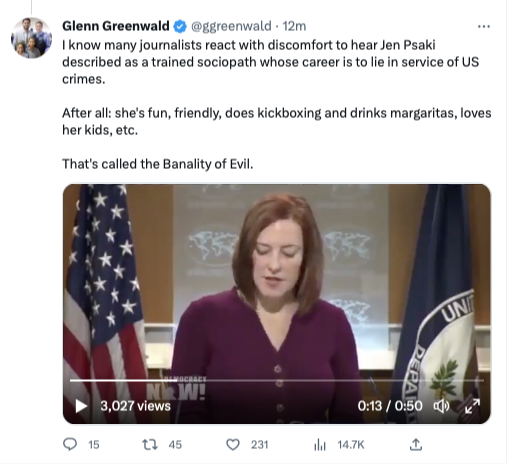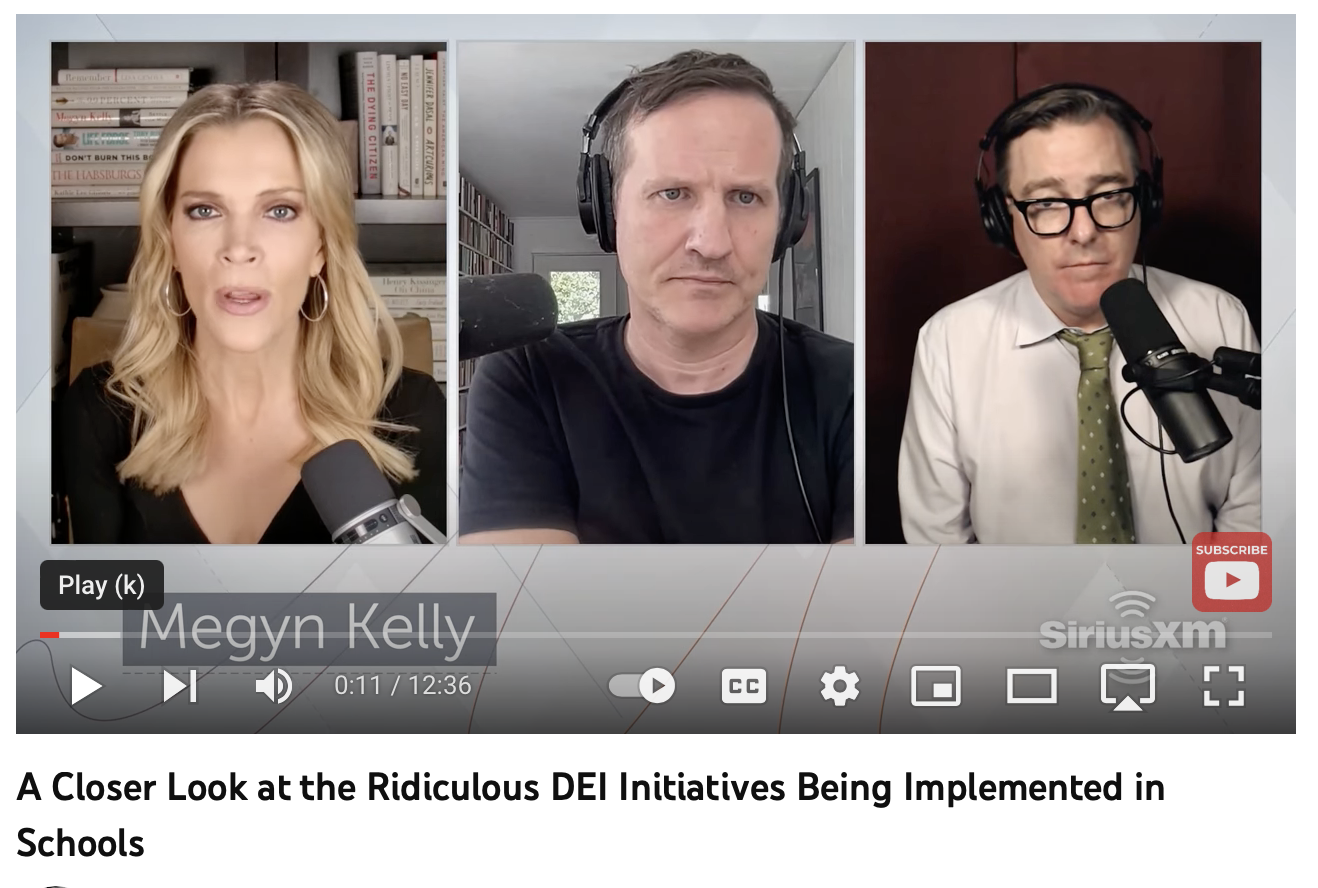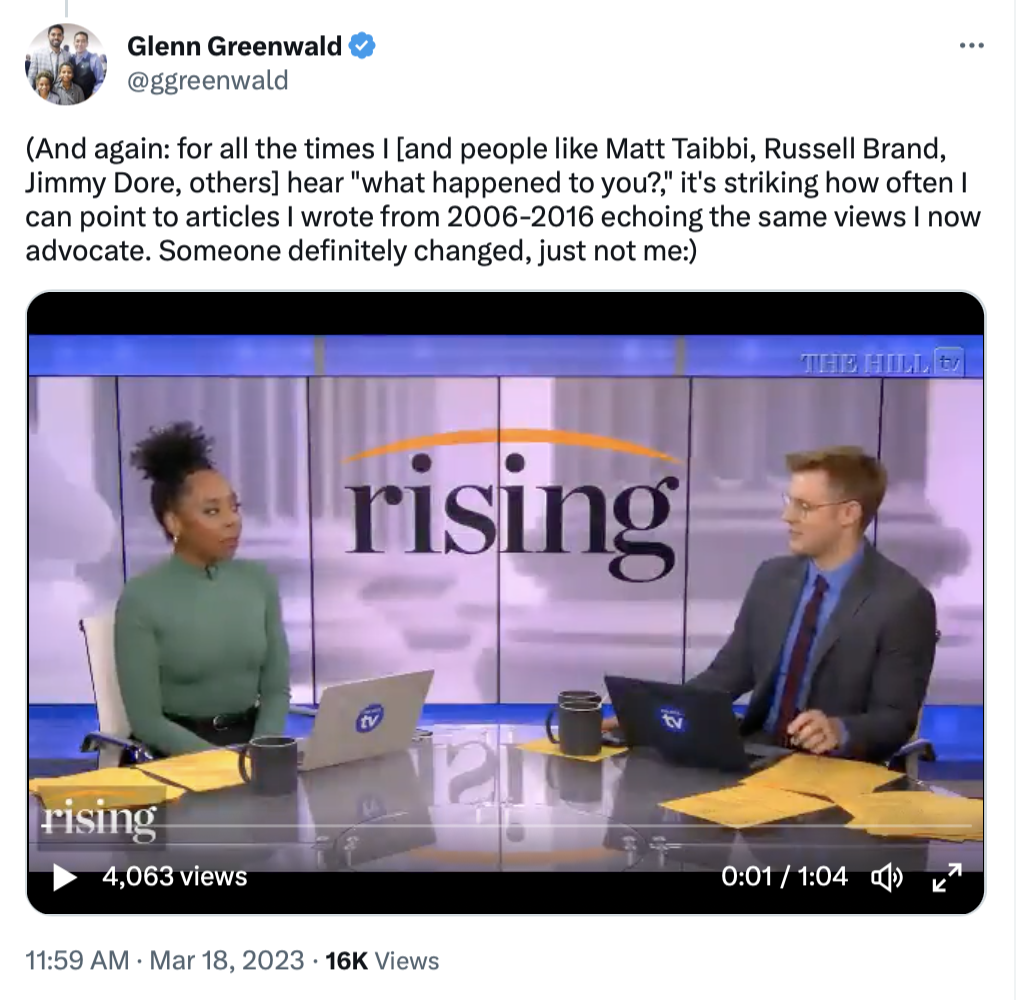What it Takes to Get a High Paying Job in Corporate Media
Yes, Jen Psaki will do well at MSNBC. "Doing Well" means saying whatever it takes to please her corporate masters, who also pull the strings at the DNC.
Whether it's FOX on the right or left-leaning corporate media, the product is the viewers, who are being played. BTW, here is a list of dozens of countries where the United States has interfered with democratic and constitutional election choices by the citizens of those other countries.
Psaki is no longer at the White House, but she will do what it takes to succeed at MSNBC, which is promoting her as follows:
Those who really know Nicolle Wallace know that this comparison is vicious. Wallace was the focus of a 2022 article by Glenn Greenwald: "The Typhoid Mary of Disinformation": Nicolle Wallace. Nobody Spreads it More Relentlessly: From her days as Bush/Cheney propagandist, to her stint on The View, to her role as beloved-by-Democrats MSNBC host, Wallace has perfected the art of sociopathic lying. Watch our original video."
Wallace has employed those personality traits in service of the most toxic and insidious of all tasks: a happy, relentless purveyor of official disinformation. When the CIA wants the American public contaminated with its lies and disinformation, Nicolle Wallace's lips begin moving. She delivers the anonymous disinformation campaigns of the U.S. security state with a tone of empathy, compassion, and liberal elegance, all in the language and with the affectations which affluent liberals most admire.
She has an unsurpassed ability to broadcast to audiences outright lies whispered to her by Deep State operatives — one after the next — without flinching or betraying the slightest sense of a conscience or moral compass. She lies like only a sociopath can: exuding charm and warmth yet utterly vacant on the inside, except for a soul festering in rot. Over the last twenty years — from her perches at the White House, on The View, and now at MSNBC — nobody has made liberals eat up Pentagon and neocon war propaganda more eagerly and uncritically than Nicolle Wallace.
There is literally not a single liberal/CIA disinformation campaign over the last six years that she did not fully and uncritically embrace. Each time the U.S. Security State and Democratic Party fabricated blatant lies and embarked on injecting their poisonous brew into the American bloodstream, Nicolle Wallace was at the forefront. Using the skills she harnessed to help lead Americans into one of its most destructive and immoral wars in U.S. history — the invasion and 15-year destruction of Iraq — the former Bush/Cheney shill, now a DNC and CIA shill, has played a starring role in virtually every lie American liberals have been led to believe.





